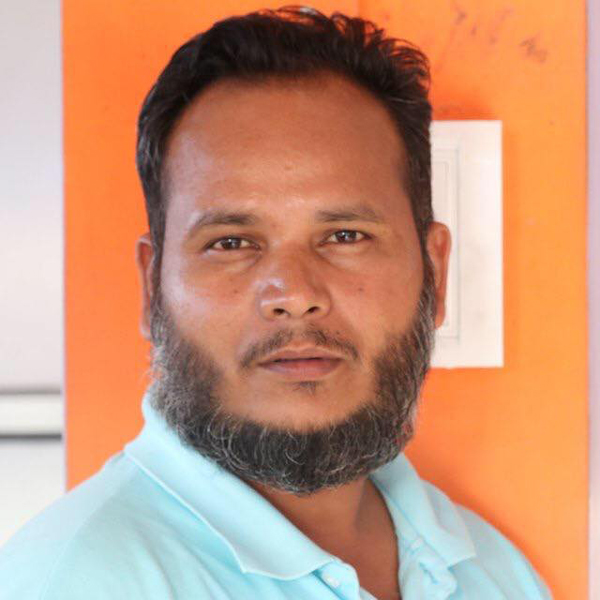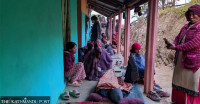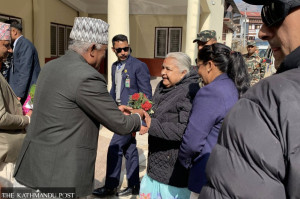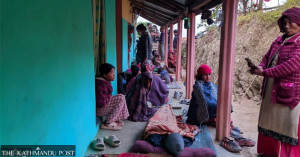Koshi Province
UML’s Hikmat Karki appointed chief minister in Koshi
It is Karki’s third stint as chief minister, and the sixth government in the eastern Nepal province in 17 months.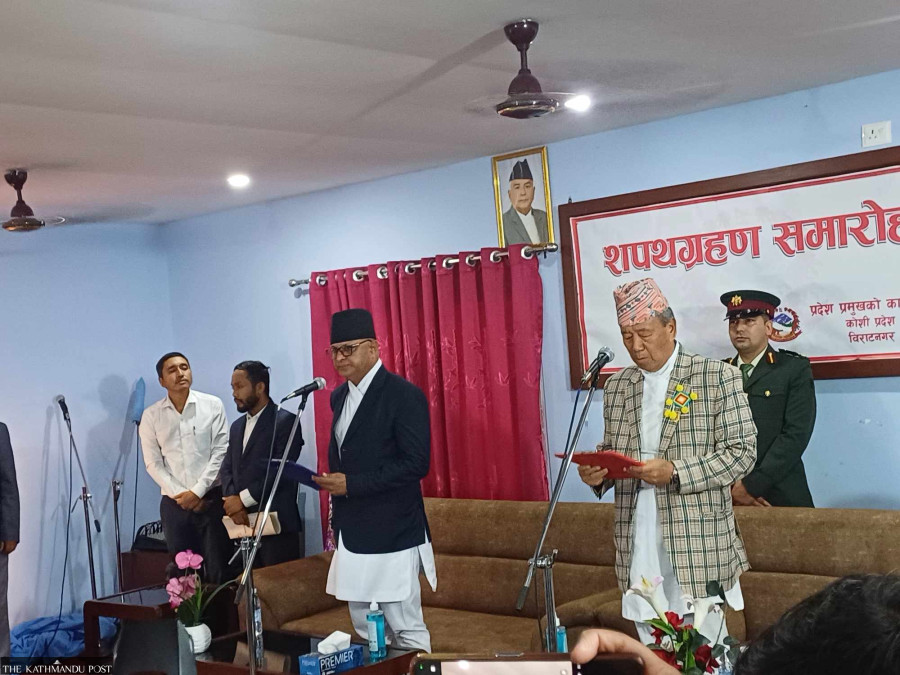
Parbat Portel
Hikmat Karki of the CPN-UML has been appointed chief minister of Koshi Province on Thursday.
Province Head Parshuram Khapung appointed Hikmat Karki as per Article 168 (5) of the constitution after the UML leader staked his claim to the post with the support of 52 lawmakers earlier on Thursday. The support of 47 lawmakers is needed for a majority to form the government in the 93-strong assembly.
Newly elected Karki took oath of office and secrecy. He also formed a Council of Ministers by appointing UML leader Ram Bahadur Rana Magar and CPN (Maoist Centre) leader Ganesh Uprety as ministers without portfolio. The ministers duo were also sworn in.
The province head in a notice on Wednesday evening asked provincial lawmakers who believe they have a majority in the assembly to present their claim for chief ministerial post by 5pm Friday.
Meanwhile, outgoing chief minister Kedar Karki filed a writ petition at the Supreme Court challenging the appointment of Hikmat Karki as unconstitutional. He has asked the court to issue mandamus, certiorari, quo warranto orders to reinstate him as the chief minister.
It is Hikmat Karki’s third stint as a chief minister and the sixth government in Koshi in 17 months. He was elected to the provincial assembly from Jhapa constituency 5 (A).
On January 8, 2023, Province Head Khapung had appointed Hikmat Karki as the chief minister of the province as per Article 168 (2) of the constitution after he laid claim to the post with the support of 60 members. He lost his position after failing to secure the vote of confidence during the floor test in the provincial assembly on June 30 of the same year.
Hikmat Karki was appointed chief minister for the second time on September 8 following a Supreme Court’s order. He resigned on October 7 without facing a floor test at the provincial assembly.
The province head on Thursday evening made the announcement hours after lawmakers from the UML and the Maoist Centre requested him to initiate the process of forming a new government.
On April 8, both the UML and the Maoist Centre withdrew their support to the Kedar Karki government. Subsequently, on April 19, a special session of the provincial assembly passed a resolution instructing the chief minister to seek a vote of confidence within 30 days of losing the majority or resigning from the post. The deadline expired on Tuesday.
Article 188 (2) of the constitution also states that the chief minister needs to seek a vote of confidence within 30 days if the coalition partners withdraw their support. However, the outgoing Chief Minister Kedar Karki remained steadfast in his refusal to either seek a floor test or resign, thereby complicating the provincial government’s position.
Kedar Karki, a leader of the dissident faction of the Congress, was appointed chief minister with the support of the UML on October 14. Later, he also got the support of the establishment (Deuba) faction of the Congress, the CPN (Maoist Centre), the CPN (Unified Socialist) and the Janata Samajbadi Party.
Kedar Karki argues that the present government was formed based on Article 168 (5) of the constitution and not Article 168 (2) and that there is no need for him to go for a floor test if he believes that he has a majority in the assembly.
Kedar Karki, who revolted within his party Congress after it decided to support Indra Bahadur Angbo of the Maoist Centre for chief minister, landed chief ministership with the backing of the UML and the Shekhar Koirala faction of the Congress. Congress leader Karki had the backing of 48 lawmakers in the 93-member assembly. While the 40 UML assembly members voted for him, eight votes came from Congress provincial assembly members.
The ruling coalition has a total of 58 seats in the 93-member assembly. The UML, with 40 seats, is the largest party. Another coalition partner, the Maoist Centre has 13 seats, while the Unified Socialist has four seats. In the 93-member assembly, a candidate needs 47 seats to prove a majority. The Congress currently has 29 seats and cannot muster a majority even with the support of the Rastriya Prajatantra Party, which has six seats in the provincial assembly.




 22.12°C Kathmandu
22.12°C Kathmandu